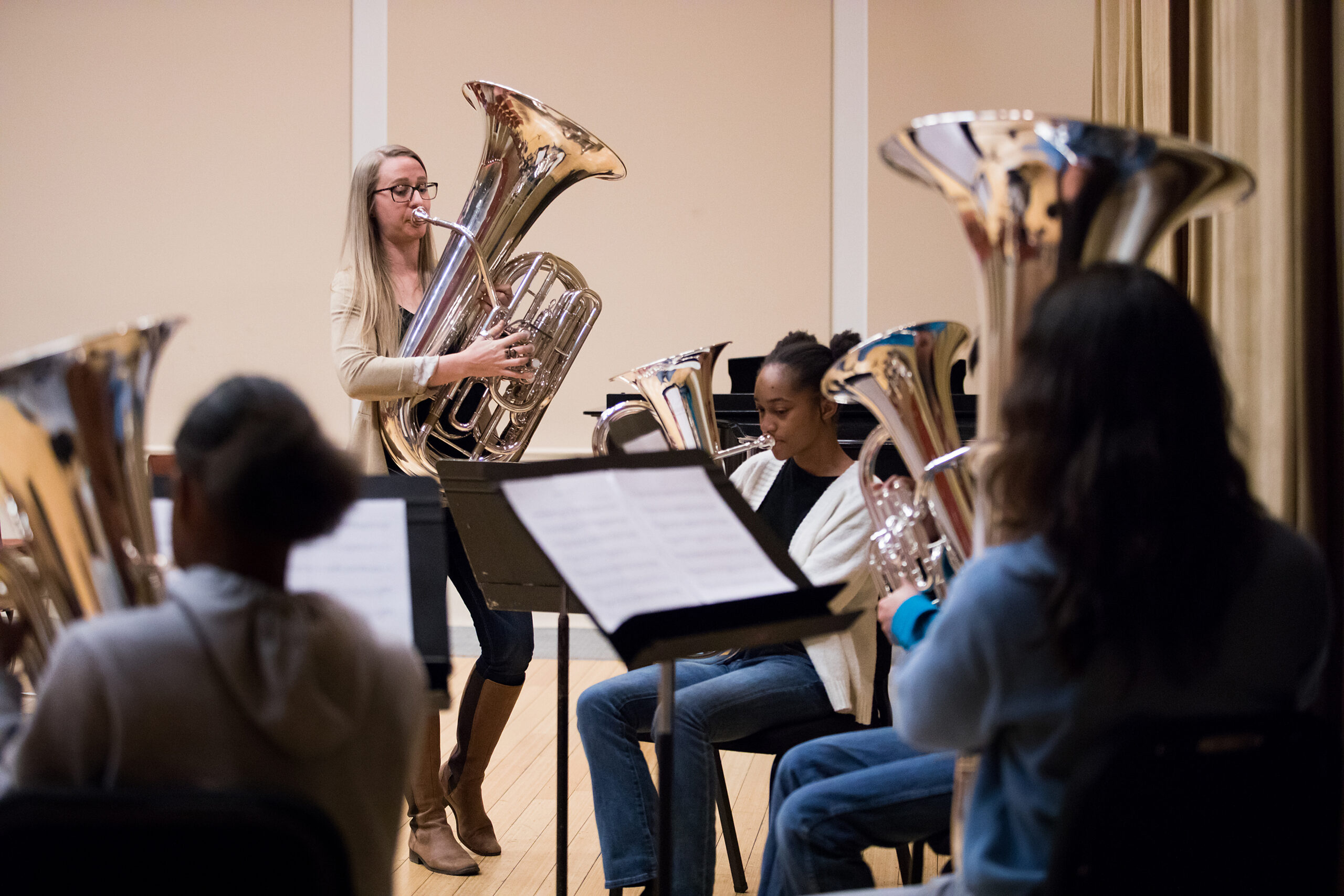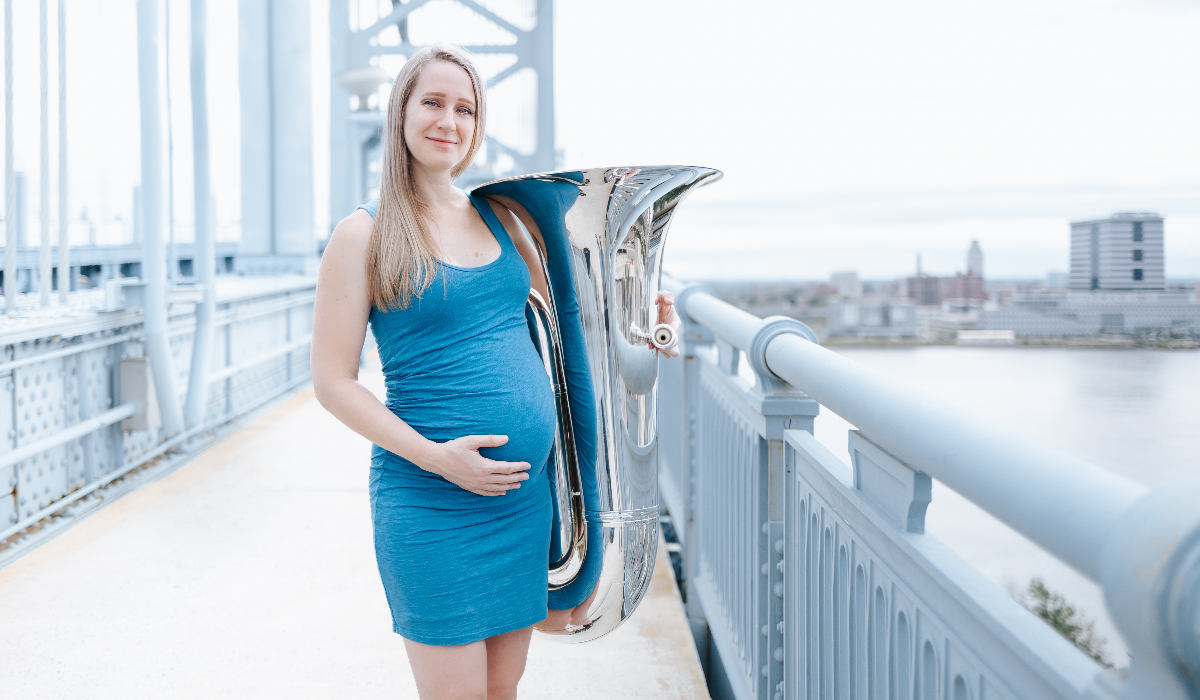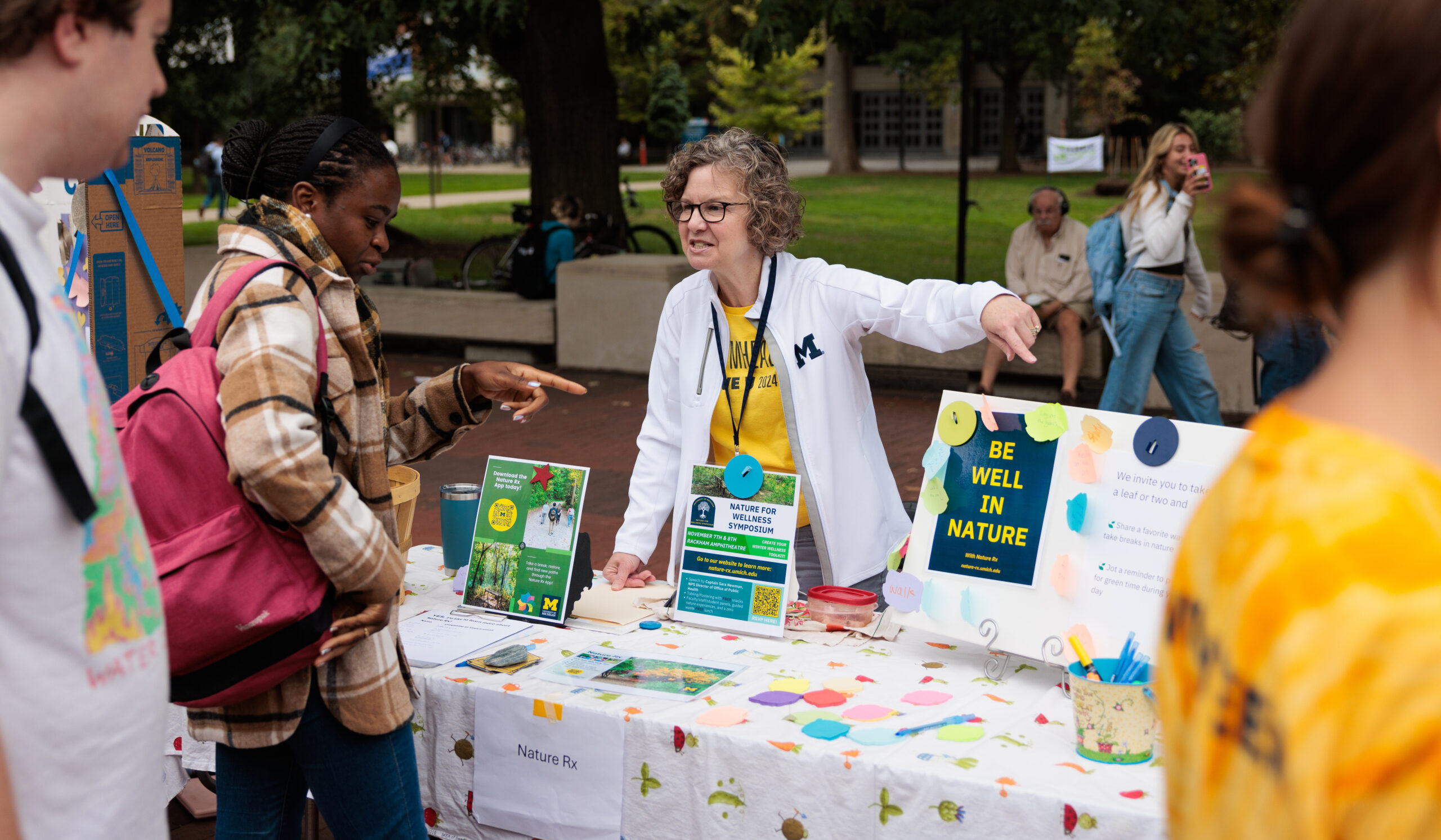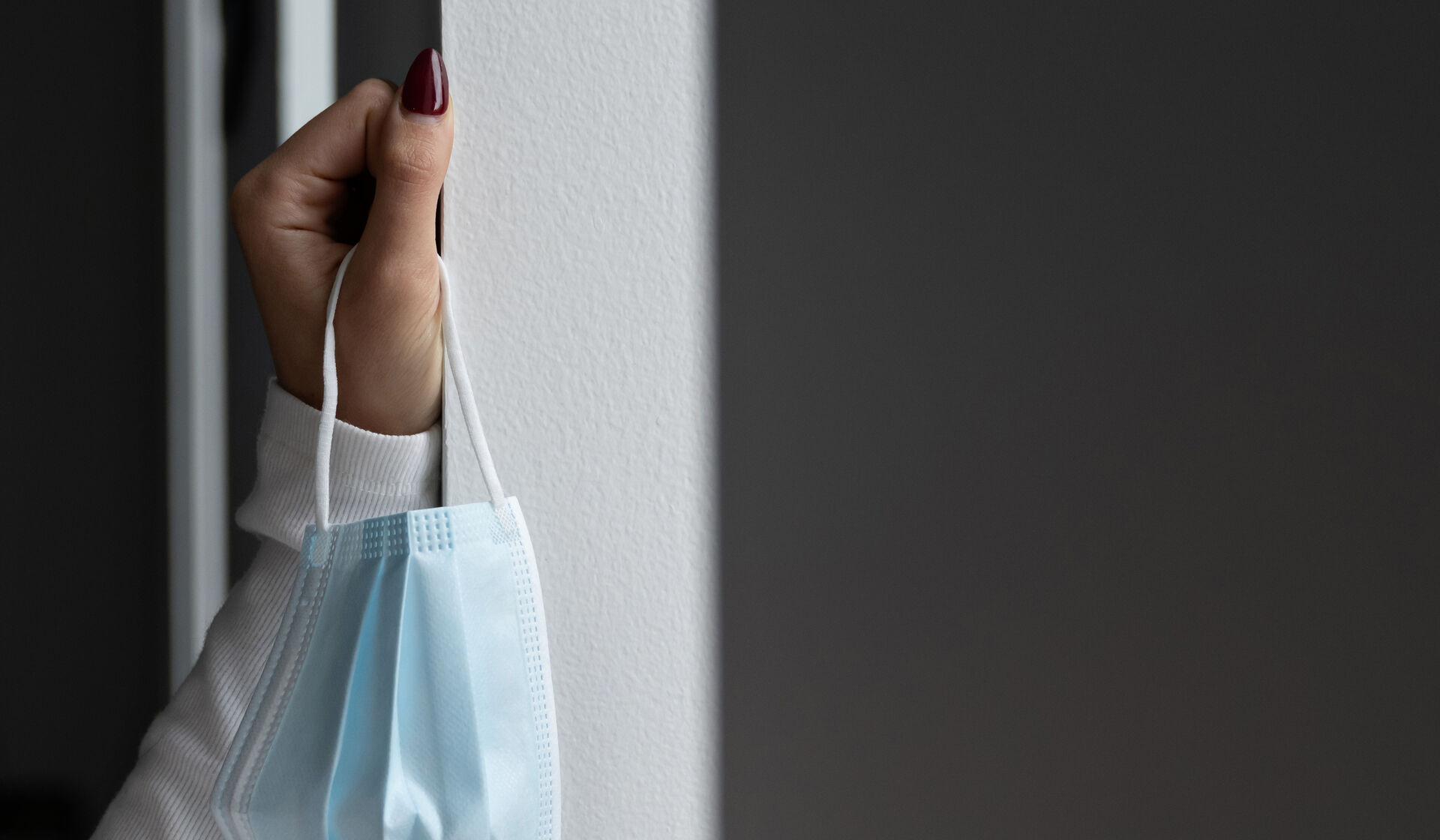Though known for their huge bell, tubas have long been the unsung heroes of the music world, relegated to the rear of the concert hall and overshadowed by their flashier brass brethren: the trumpets and trombones.
Tuba virtuoso Carol Jantsch, ’06, has set her sights on rewriting that score.
Jantsch won the coveted position as Principal Tuba of the Philadelphia Orchestra during her senior year at the University of Michigan. Since then, she has catapulted the tuba to center stage through solo recitals, concerto premieres, classical and pop music recordings, university teaching, and community outreach.
“The most important aspect of all facets of my career is connecting to the audience,” says Jantsch. “In my solo performances, I lean toward audience-approachable music with a broad appeal. I also have a tuba cover band, Tubular, that plays greatest hits by popular recording artists. I like reaching out to audiences where they are. That’s important if we want to keep people interested in classical music.”
Some of Jantsch’s most ardent fans are in Ann Arbor. In March 2022, the Philadelphia Orchestra concert at Hill Auditorium featured her as the tuba soloist in the University Musical Society premiere of jazz composer Wynton Marsalis’s “Tuba Concerto.” The work was commissioned by the orchestra specifically for Jantsch, and her dazzling performance earned a standing ovation.
“Stepping on stage at Hill Auditorium brought back so much nostalgia,” says Jantsch, who performed there often with the U-M Symphony Band as a student. “I could feel the love and support from the audience. It felt like home.”
Befriending a Euphonium
Jantsch, an Ohio native, started her music education early, beginning with the piano at age 6. Three years later, while attending summer music camp at Interlochen Center for the Arts near Traverse City, Michigan, Jantsch picked up a euphonium, often called a “baby tuba.”
“I wanted an instrument that nobody else played — something weird and different,” she explains. “Later on, I graduated from the euphonium to the tuba and went to boarding school at Interlochen during my last three years of high school.”
Jantsch not only improved her technique on the tuba, but also honed her skill for lobbing the unwieldy brass instrument into a Finnish lake.
In 2001, she competed in a tuba-throwing contest during the annual International Tuba Euphonium Association conference in Lahti, Finland. The contestants lined up on a dock where they flung an old tuba filled with Styrofoam and tethered to a rope into Lake Vesijärvi. When Jantsch’s turn came, she plunged into the icy water, heaved the tuba as far as she could, and won the women’s division.
Going Pro
The following year, Jantsch enrolled at U-M to study with Fritz Kaenzig.
“Carol’s intelligence, talent, hard work, and ability to stay down to earth with her outside activities like Ultimate Frisbee proved to be a winning and highly successful combination,” says Kaenzig, who retired from the School of Music, Theatre, and Dance in 2020.
Jantsch’s long hours of practice with the U-M Symphony Band under the direction of conducting professor Michael Haithcock helped to prepare her for the demanding life of a professional musician.
“Professor Haithcock had such high standards for us and expected us to be organized and prepared,” she recalls. “Each player was responsible for learning his or her part before band rehearsal, so that time could be devoted to putting all the parts together. That’s the situation I find myself in now at the Philadelphia Orchestra.”
To jump-start her music career while she was in school, Jantsch auditioned for a permanent spot with the Philadelphia Orchestra in May 2005. The orchestra decided not to hire anyone from that audition, but she made it to the final round and was added to the substitute players list.
In February 2006, she auditioned again for the position of Principal Tuba and, this time, was selected for the spot.
“Professor Kaenzig had the best reaction — he cried when I called him from Philadelphia to tell him the news,” Jantsch says. “For me, I think it took a while for the reality of it to sink in. I went back to U-M to finish my degree, and it was an incredibly surreal feeling to have this amazing orchestra job waiting for me.”
Once Jantsch took her permanent seat with the Philadelphia Orchestra, she was swept up in a whirlwind European tour that transported her to the major concert halls in London, Paris, Lucerne, Hamburg, and Berlin.
“I was this wide-eyed 21-year-old kid and the youngest member of the orchestra,” she says. “I remember playing the BBC Proms in Royal Albert Hall in London. It was a round hall that held 6,000 people, and 1,000 of them stood throughout the concert just to hear us play. Their enthusiasm was so exciting.”
Jantsch continued to expand her career with appearances at brass festivals in Finland, Germany, Canada, and around the United States. She also performed as a soloist with the Albany Symphony, the Virginia Symphony, the United States Army Band “Pershing’s Own,” and the Kristiansand Symfoniorkester in Norway. Jantsch released two solo tuba albums: “Cascades” (2009) and “Powerhouse” (2020), which features a musical collaboration with her brother, Bert, who plays piano, bass, and guitar.
In 2014, she and three former U-M tuba and euphonium classmates, plus a talented drummer friend formed Tubular. The band performs pop hits by Lady Gaga, ABBA, Led Zeppelin, and other artists that Jantsch has arranged for their low brass instruments. In addition to playing local gigs at Franky Bradley’s and Johnny Brenda’s in Philadelphia, the ensemble has recorded an album titled “There’s No Going Back.”

Filling the Talent Pipeline
Jantsch’s pioneering role as the first female tuba player in a major symphony orchestra won accolades when she received the University’s Bicentennial Alumni Award in 2017.
Now, she teaches graduate students at the Yale School of Music and has committed her own time and money to advancing music education among youth in her adopted city of Philadelphia.
In 2018, Jantsch established Tubas For Good, a nonprofit organization that provides musical instruments for students in the Philadelphia School District.
“Growing up in the Ohio suburbs where nearly all the schools have band programs, I had no sense of what music education in urban settings was like,” Jantsch says. “I learned that a lot of schools in the city have no band program at all while others rely on itinerant teachers who only see the kids once a week. I wanted to pay it forward and find a way to help.”
Jantsch purchased 21 plastic euphoniums for her nonprofit in 2019, but music programs in the Philadelphia schools were suspended when the COVID-19 pandemic struck. Now efforts are underway to restart music education and fill the talent pipeline.
“I’m very long-game oriented with the nonprofit,” explains Jantsch. “I’m not trying to make a big splash or pretending like I can fix everything. This is an investment to supplement what’s already there, so that in 10 years I don’t have trouble finding talented high school tuba players in the area.”
This past summer, Jantsch and her husband, Adam Smith, welcomed a new member to their family: a baby girl they named Sidney. Jantsch plans to bring her infant daughter along when the Philadelphia Orchestra travels on its annual summer tour to Colorado and upstate New York.
“Sidney laughs when I buzz my lips at her,” Jantsch says. “She sleeps through tuba playing!”
Claudia Capos, ’73, is a freelance writer and theater historian.





